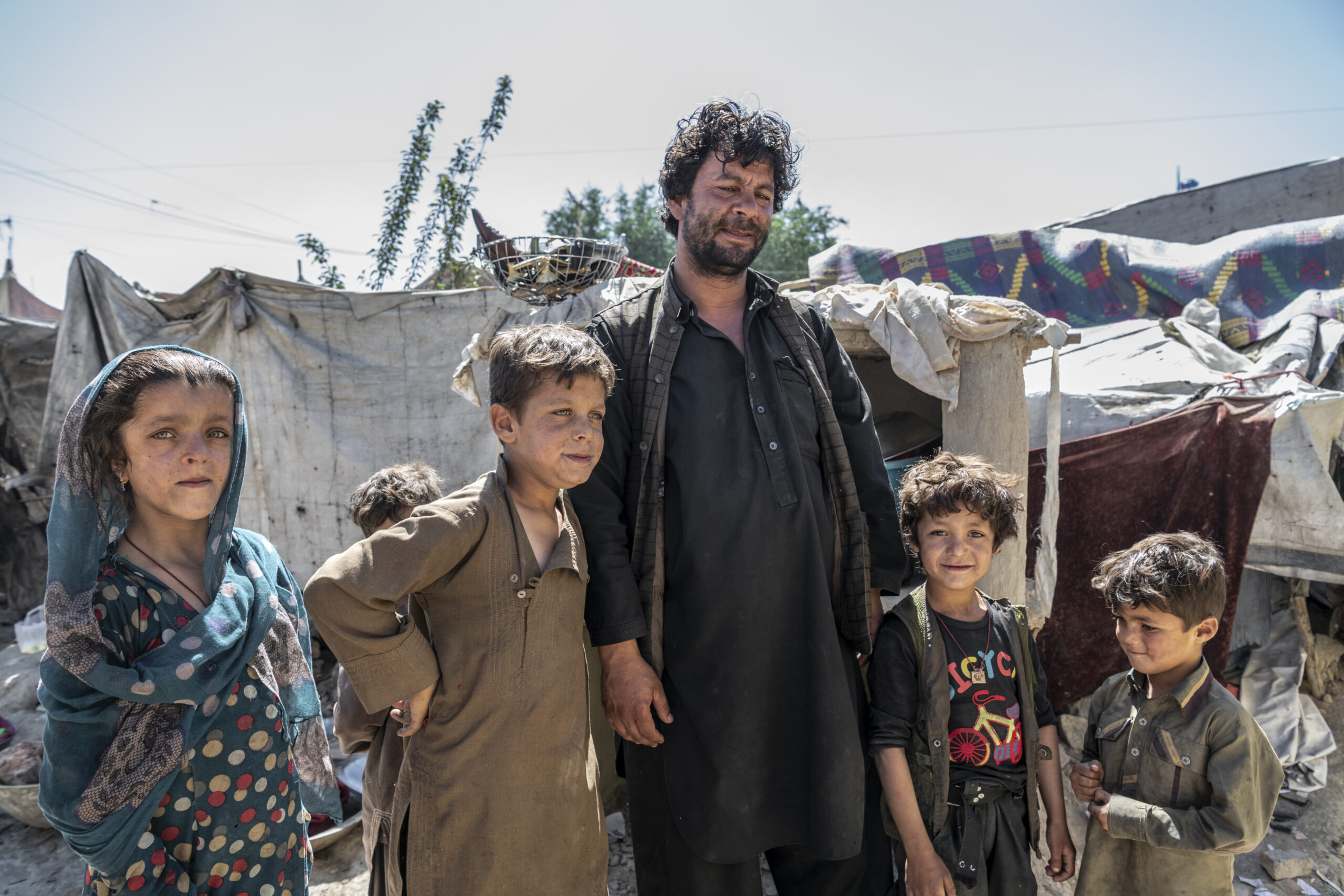Imminent humanitarian crisis in Afghanistan
“We had no time to gather anything. We fled with only a blanket.”
– Maryam, 24, internally displaced Afghan woman in Mazar-e Sharif
Afghanistan is experiencing a humanitarian and displacement crisis. Over half a million Afghans have been newly displaced inside the country in 2021, and Afghan women and girls make up the majority of those displaced. Families speak of having to flee at a moment’s notice, even when faced with the risk of improvised explosive devices and attacks by armed groups during their flight.
This latest wave of violence comes on top of recurrent natural disasters such as the current devastating drought. The COVID-19 pandemic has also had far-reaching health impacts as well as socio-economic repercussions. Less than 13 per cent of the population is fully vaccinated.
Afghans already constitute one of the world’s largest refugee populations worldwide. Some 90 per cent of Afghan refugees are hosted in neighbouring Iran and Pakistan, with more than 2 million registered in the two countries. Another 3 million people were already displaced inside the country before new fighting broke out this year.
Afghanistan’s children are growing up amid this crisis. Some 65 per cent of the Afghan people – in and outside of Afghanistan – are children and young people, anxious about their future in the face of insecurity and economic challenges.
The resilience of Afghan families is being stretched to breaking point. The situation in Afghanistan was already complex, and failure to resolve the current instability will lead to new displacement.
What is UNHCR doing to help?
Together with partners, UNHCR is committed to staying and delivering amidst the deteriorating situation and growing displacement, as long as we have access to populations in need. We have activated our emergency response to protect the most vulnerable and assist newly displaced Afghans with life-saving shelter, food, water, and core relief items, both within Afghanistan and in neighbouring countries.
Preventing the spread of COVID-19 remains a priority. To help reduce the risk of as much as possible, UNHCR is providing buckets and jerry cans in its relief kits to displaced families. These supplies are especially important in areas where access to clean water is difficult. UNHCR has also established hand-washing stations and distributed hygiene kits including soap and face masks. In addition, we are providing emergency cash support to help displaced families mitigate the socio-economic impact of the pandemic.
UNHCR has also undertaken protection monitoring covering 29 provinces in 2022 and as part of the broader UN effort, helped assess the needs of almost 300,000 internally displaced people since the start of the year. But more humanitarian aid is urgently needed. We are ramping up our response, and we need support to protect and assist people forced to flee.
Afghanistan is currently facing one of the largest displacement crises of our time, with more than 820,000 people forced to flee their homes.
External Update – Afghanistan Situation

The situation is dire. We need to act now!

You could provide a kit of core relief items, including blankets, sleeping mats, jerrycans, a bucket, mosquito nets and kitchen set, to 2 Afghan refugee families in Pakistan.

You could provide 100 sleeping mats to those affected by the displacement crisis in Afghanistan.

You could provide an emergency shelter kit, which includes a family tent and 2 plastic tarpaulins, to a displaced family in Afghanistan.
Your long-term support can help get Afghan people’s lives back on track.

You can provide jerry cans to 17 families to fetch water.

You can provide blankets to 6 families affected by the displacement crisis in Afghanistan.

You can provide sanitary kits, including 3 bars of laundry soap, 3 bars of toilet soap, and 2 boxes of sanitary napkins, to 7 displaced families in Iran.

